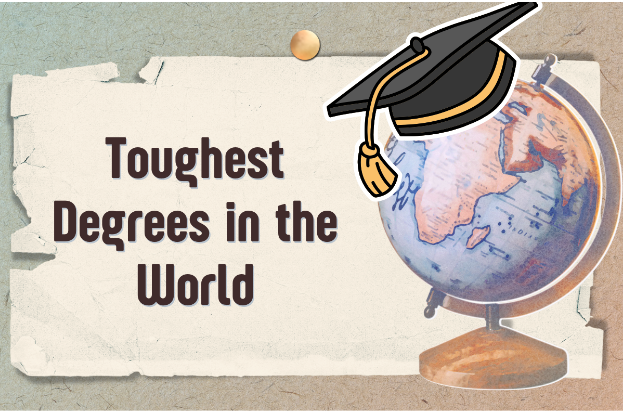Several top-ranked universities offer international students the opportunity to pursue a Masters In Environmental Engineering In Canada. These reputed institutions integrate principles from various subject areas like environmental sciences, ecology, chemistry and physics. Here, students learn to develop tools, machinery, and systems to decrease pollution and protect human health. In the blog, we highlight the top-ranking universities offering Masters In Environmental Engineering In Canada and how you can apply.

Excel in IELTS with India’s Top Online Coaching
Leap has helped more than 1 Lakh students achieve 7+ IELTS band.
Best Universities for Masters in Environmental Engineering in Canada
The following universities offer Masters In Environmental Engineering In Canada at impeccable standards.
| University Name | Qualifying Exam Scores | Course Fee (in CAD)** |
| Dalhousie University |
| 16,309 CAD |
| Concordia University |
| 20,894 CAD |
| University of Ottawa |
| 33,028 CAD |
| University of Windsor |
| 22,548 CAD |
| University of Regina |
| 23,121 CAD |
| Lakehead University |
| 42,640 CAD |
Dalhousie University
Details of the university and course are described in the table below.
| Particulars | Highlights |
|---|---|
| University Type | Public |
| Year of Establishment | 1818 |
| Course Level | PG Degree |
| Course Name | MEng in Environmental Engineering |
| Duration | 1.5 to 2 year |
| Fees | 16,309 CAD |
Entry requirements for the course are as follows –
- Applicants must hold an undergraduate degree from a certified university.
- Candidates with an average GPA of 3 in the last two years of their Bachelor’s degree
- Certificates of thesis-based programs must be accompanied by an undergraduate honours degree. This can be waived by providing substantial evidence of research capacity.
- Upon presenting an equivalent qualification with a high scholastic standing from a certified university, an applicant will also be considered.

Excel in IELTS with India’s Top Online Coaching
Leap has helped more than 1 Lakh students achieve 7+ IELTS band.
Concordia University
Details of the university and course are described in the table below.
| Particulars | Highlights |
|---|---|
| University Type | Public |
| Year of Establishment | 1974 |
| Course Level | PG Degree |
| Course Name | Environmental Engineering (MEng) |
| Duration | 2 years |
| Fees | 20,894 CAD |
Entry requirements for the course are as follows –
- Applicants should hold a Bachelor’s degree with a GPA equivalent to an average grade of B in relevant subject areas. Apart from that, other qualification norms include –
4 years Bachelor’s degree in Engineering and Computer Science or 3 years Bachelor’s degree with a 2 years Master’s degree
- Bachelor’s degree with an above-average standing in subject areas like –
- Chemistry
- Biology
- Environmental Sciences
- Geography
- Microbiology
- Urban Studies
- Applicants must maintain a minimum score of 6.5 in each band of the IELTS exam.
University of Ottawa
Details of the university and course are described in the table below.
| Particulars | Highlights |
|---|---|
| University Type | Public |
| Year of Establishment | 1848 |
| Course Level | PG Degree |
| Course Name | Master of Engineering in Environmental Engineering |
| Duration | 2 years |
| Fees | 33,028 CAD |
Entry requirements for the course are as follows –
- Applicants must hold a minimum average of 70% in the undergraduate degree program. Further eligibility norms include –
-Bachelor’s degree with a specialisation in environmental engineering– With 70% marks major graduation in engineering-related areas such as civil, chemical mechanical and others
- Further, candidates must demonstrate good academic performance in previous qualifications and present their transcripts to showcase research skills.
- Applicants must meet the IELTS cut-off requirement of 6.5 out of a possible 9.
Explore all countries
University of Windsor
Details of the university and course are described in the table below.
| Particulars | Highlights |
|---|---|
| University Type | Public |
| Year of Establishment | 1857 |
| Course Level | PG Degree |
| Course Name | Honours Certificate in Environmental Engineering |
| Duration | 1 year |
| Fees | 22,548 CAD |
Entry requirements for the course are as follows –
- Applicants must hold a 4-years bachelor’s degree from a certified university.
- Must have completed Bachelor of Applied Science (BASc).
- A four-year bachelor’s degree in subjects including –
- Chemistry
- Biochemistry
- Biotechnology
- Earth Sciences
- Other science-related fields
University of Regina
Details of the university and course are described in the table below.
| Particulars | Highlights |
|---|---|
| University Type | Public |
| Year of Establishment | 1911 |
| Course Level | PG Degree |
| Course Name | Master of Engineering in Environmental Systems |
| Duration | 1.5 to 2 years |
| Fees | 23,121 CAD |
Entry requirements for the course are as follows –
- Applicants must hold a 4-years baccalaureate degree completion certificate with a minimum score of 70% from a certified university.
- Candidates with lower average scores over the 4-year course program will also be considered if they have significantly higher average in the last two years.
- They must hold scores of a minimum of 20 in each of the components of TOEFL.
- ELP waiver is given to students completing their previous qualifications from an English medium institution.
- They should secure a minimum of 6.0 in each section of the IELTS exam.
Lakehead University
Details of the university and course are described in the table below.
| Particulars | Highlights |
| University Type | Public |
| Year of Establishment | 1965 |
| Course Level | PG Degree |
| Course Name | Master of Science in Environmental Engineering |
| Duration | 2 years |
| Fees | 42,640 CAD |
Entry requirements for the course are as follows –
- Applicants with a minimum score of 70% in 4 years of degrees in engineering and natural science or equivalent qualification from a certified university
- Candidates with a degree in another subject area will be considered based on the courses taken and academic performance.
- Individuals must have a minimum score of 19 in each component of TOEFL.
- They should secure scores of 50 in each component of the PTE exam.
- Individuals with a minimum score of 6 in IELTS are admissible.
After completing the course program for a Masters In Environmental Engineering In Canada, the job prospects reach a new level. Individuals with this degree can work for public institutions, including local, state and federal governments. Further, they are involved in various activities, from designing water treatment plants to cleaning up hazardous waste sites. These individuals can also study a doctoral program in environmental engineering, thus making them reach newer heights in their professional careers. Book your session with Leap Scholar Counsellors for detailed guidance.
Frequently Asked Questions
Is there a demand for Masters In Environmental Engineering in Canada?
With the rise of pollution and waste in the environment produced by various industries, the demand for an environmental engineer has risen manifold globally. These engineers possess unique skills in ecological research and management to curb pollution and hazardous waste.
Is environmental engineering a good career in Canada?
The average starting salary of an environmental engineer is around 41,016 CAD, and with an increase in experience, the average annual salary can rise to 82,032 CAD or above. Further, it is one such course that provides high job prospects with a high return on investment and individuals completing this degree can get designated to a variety of top organisations working towards the betterment of the environment.
What environmental jobs are in demand in Canada?
There are several environmental jobs for individuals in Canada. Some of them are recycling workers, ecologists, directors of ecological services, environmental scientists, environmental technicians, environmental specialists and ecological compliance specialists. Further, environmental engineers are involved in hazardous waste management and a variety of components and processes involved at industrial levels.
What is the future after studying Masters In Environmental Engineering In Canada?
The employment growth of environmental engineers per year is projected to be around 4% which is quite slow compared to the average growth of other occupations. Nevertheless, though the growth from 2020 to 2030 might be slow, around 4000 job openings are projected for environmental engineers yearly.














Have Questions? Get Guidance to reach your Dream University
Connect with India's finest counsellors and biggest study abroad community.
Get Guidance